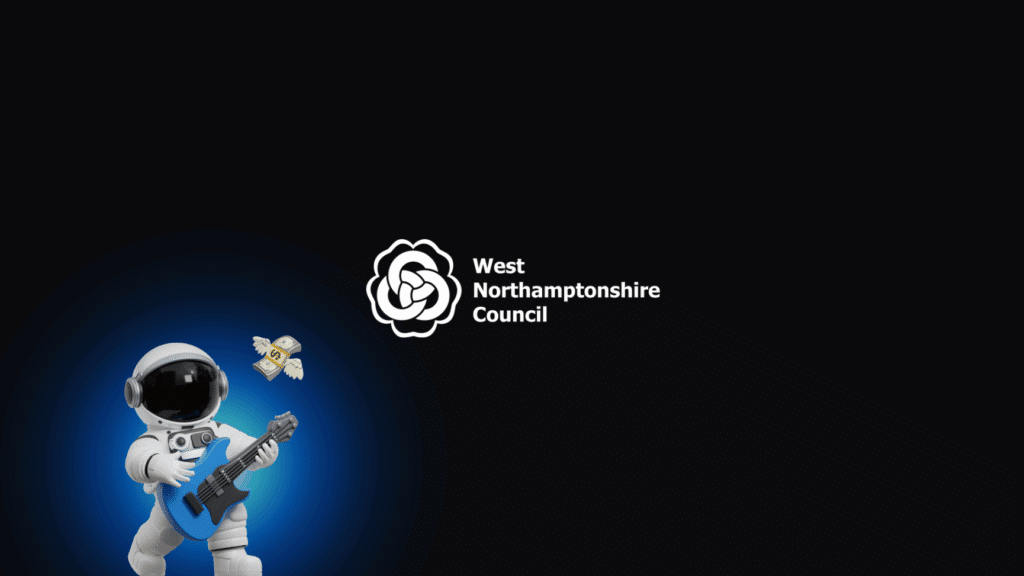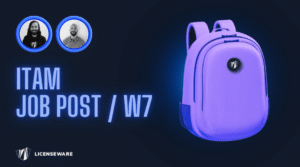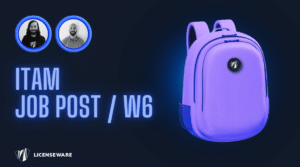West Northamptonshire Council’s Saves £1 Million on Microsoft in Post-Merger License Consolidation

In an era of tightening public sector budgets, a £1 million saving is a significant victory for taxpayers. West Northamptonshire Council (WNC) has achieved just that, securing approximately $1.25 million USD in savings through a renewed and consolidated software licensing agreement with Microsoft.¹ This achievement is more than just a successful negotiation; it is a powerful case study in the value of strategic Software Asset Management (SAM), particularly in the complex aftermath of a public sector merger. The council’s move provides a clear blueprint for how untangling a fragmented software estate can lead to substantial financial and operational benefits.
The story begins in April 2021, when West Northamptonshire Council was formed as a new unitary authority, merging the old Northamptonshire County Council with three district councils: Daventry, Northampton, and South Northamptonshire. While the merger created a single new entity on paper, it left behind a complicated and inefficient digital legacy. The new council inherited four separate Microsoft licensing agreements, each with different terms, renewal dates, and pricing structures.
This fragmented approach is a classic challenge in any merger and acquisition scenario, public or private. It creates a significant administrative burden, prevents the organization from leveraging its full buying power, and often leads to duplicated costs and compliance risks. The WNC was essentially operating as four smaller entities in its relationship with Microsoft, unable to realize the economies of scale that its new size should have afforded.
From Fragmentation to a Unified Front
The solution, approved by the council’s cabinet in July 2024, was to consolidate these disparate agreements into a single, unified Microsoft Enterprise Agreement (EA).² An EA is a procurement vehicle designed for large organizations, providing a simplified way to buy software and cloud services in volume, typically over a three-year term. By moving to this model, WNC created a single point of negotiation and management for its entire Microsoft software estate.
The agreement covers the council’s use of the Microsoft 365 suite, which bundles Windows Enterprise, Microsoft Office 365, and the Enterprise Mobility + Security (EMS) tools. This provides a standardized digital toolkit for thousands of council employees, enabling secure and collaborative work across the organization. Councillor Mike Hallam, Cabinet Member for Corporate Services and HR, highlighted the strategic importance of the move, stating, “By bringing our licensing under one roof, we’re not only achieving significant savings but also enhancing our digital capabilities.”¹
Deconstructing the £1 Million Savings
The £1 million saving is not the result of a simple discount; it is the culmination of several key SAM principles that other organizations can learn from.
- Leveraging Economies of Scale: The most significant factor is volume. By combining the user counts from the four predecessor councils into a single negotiation, WNC was able to command a much better price point from Microsoft. A single large customer has far more bargaining power than four smaller ones.
- Administrative Efficiency: Managing a single contract is vastly more efficient than juggling four. The new agreement reduces the administrative overhead associated with tracking multiple renewal dates, managing different license terms, and processing separate invoices. This frees up valuable IT and procurement staff time to focus on more strategic initiatives.
- Standardization and Modernization: The move to a unified Microsoft 365 platform allows the council to standardize its IT environment. This simplifies IT support, reduces training costs, and improves the overall security posture by ensuring all users are on a modern, regularly updated platform. It also provides advanced tools for security and device management, which are critical for a public body handling sensitive citizen data.
- Eliminating Redundancy: A thorough review of the four legacy agreements likely uncovered overlapping licenses and shelfware—software that was paid for but not being used. The consolidation process provides the perfect opportunity to “true-up” the license count, ensuring the council only pays for what it actually needs.
The WNC’s success story is a powerful reminder that effective Software Asset Management is not just a compliance exercise; it is a critical financial management discipline. In the public sector, where every pound saved can be redirected to vital frontline services, the return on investment from strategic license consolidation can be immense. By tackling its fragmented digital legacy head-on, West Northamptonshire Council has delivered a masterclass in turning a complex post-merger challenge into a £1 million dividend for its taxpayers.
Sources
- Northampton Chronicle & Echo, Renewed software licensing agreement with Microsoft will save taxpayers £1 million, says West Northamptonshire Council (July 11, 2024) https://www.northamptonchron.co.uk/news/politics/renewed-software-licensing-agreement-with-microsoft-will-save-taxpayers-ps1-million-says-west-northamptonshire-council-5241796
- West Northamptonshire Council, Cabinet Meeting Agenda and Documents (July 9, 2024) https://westnorthants.moderngov.co.uk/ieListDocuments.aspx?CId=147&MId=2299 (See Agenda Item 8: Microsoft Enterprise Agreement)










